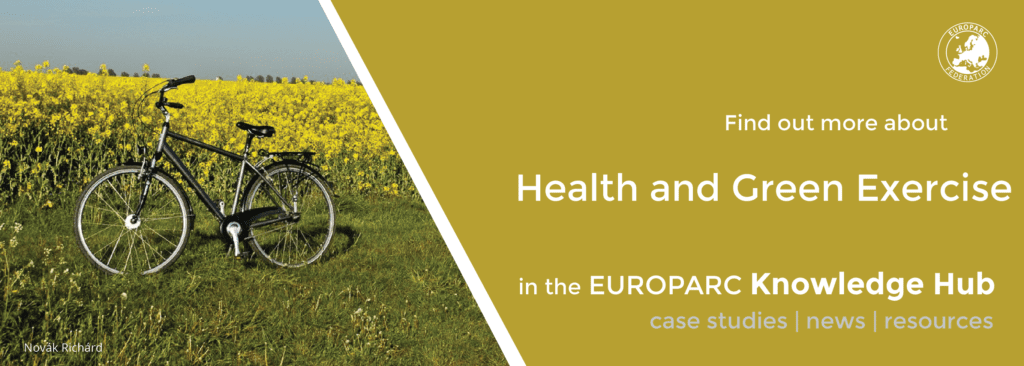Sustainable Mental Health Initiatives in Protected Areas – Anna Jennings
Example of simple evaluation technique © Anna Jennings
Every year, the Alfred Toepfer Natural Heritage Scholarship supports the work of young conservationists in Protected Areas across Europe. Anna Jennings, an engagement ranger at the Peak District National Park, was one of the winners of the Scholarship in 2020 and travelled across Scotland and England to learn more about outdoor mental health initiatives. The following article is written by Anna. The current call for scholarships is also opened.
Outdoor Mental Health projects are a relatively recent area of focus for Protected Area Organisations. Traditionally, projects have been relatively short term and reliant on small pots of grant funding and complicated evaluation techniques. This report highlights some ways in which current projects in the UK are taking a more sustainable approach by exploring the following objectives:
- To further explore the principles set out by the EUROPARC Federation in its “Healthy Parks Healthy People Toolkit: Health and Well-being benefits from Parks and Protected Areas”, by providing practical tips for projects, in order to work towards a consistent and connected approach to mental health across Europe’s protected places, which can be shared with EUROPARC members in this report.
- To gain insight into the best practice techniques to get the most positive and sustainable outcomes for people’s mental health.
- To explore less paperwork intensive and clinical evaluation methods.
Although sustainability is as ever illusive and difficult to define, there is certainly a move towards initiatives which offer longer term impacts and opportunities for progression. In the UK, the integration of Green Social Prescribing into the National Health Service offers a promising future for Mental Health projects in Protected Areas. This report further builds on the afforementioned EUROPARC HPHPe Toolkit for Health and Wellbeing benefits from Protected Areas, by setting out recommendations for the successful planning, setting up and running of outdoor Mental Health Projects to ensure the best outcomes for participants and facilitators, particularly in the UK context. The report outlines the case studies of Wild Ways Well, The Wilderness Foundation and Wild at Heart to provide examples of and suggestions for ways to implement the principles set out in the toolkit: Making the Case, Building Partnerships, Developing Capacity and Practice and Connecting People and Nature, and the ways in which these finding have changed the working practices at the Peak District National Park.
Have a look at this video that summarises the report:
Highlights of the report
The main outcomes of study visits:
- Ways to establish lasting partnerships with local Health Organisations.
- Most effective activities and length of projects for mental health initiatives.
- How to ensure long lasting outcomes for participants, which are integrated into their daily lives.
Main learnings for the Peak District National Park:
- How regular Wellbeing sessions were established.
- How lasting partnerships with local Health charities and social prescribers were established.
- The importance of supporting staff’s wellbeing when delivering mental health initiatives.
Ideas that can support the EUROPARC network:
- ‘Know your worth’ – Protected Areas should establish themselves as leading providers of mental wellbeing nature connection, especially peri-urban parks, as they are uniquely situated to reach populations with high quality greenspaces on their doorstep.
- Training recommendations and ways to properly support staff delivering mental health projects.
We’ve interviewed all 2020 winners of the Alfred Toepfer Scholarship in a EUROPARC Podcast, you can listen to it here:
